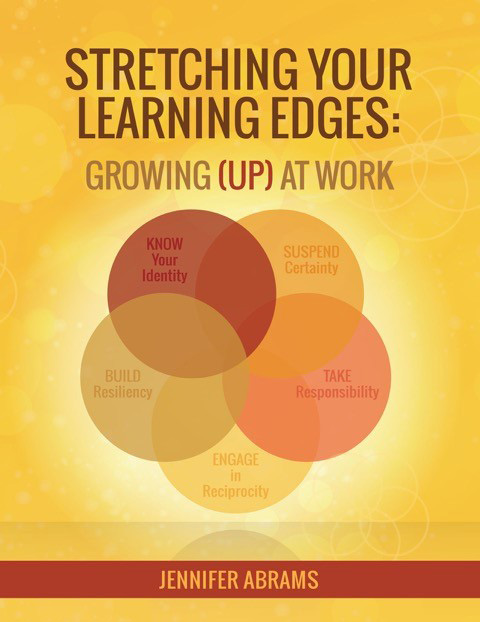Feedback: How Good Are You at Receiving It?
March 16, 2016

This post was originally written by Jennifer and published on Education Week’s opinion blog, Finding Common Ground.
I have spent much of my time as an author and educational consultant writing about finding your voice around what matters and having hard conversations. Yet, I find that I haven’t been as helpful as I could have been, as I haven’t fully addressed being on other side of a challenging conversation. How do you, in a healthy, open-minded way, listen to difficult comments that come your way about your behavior and your actions? How can you be better receiver of challenging feedback or as Alain de Botton says, “at having non-persecutory, speedy, resilient emotional digestion“?
Feedback is in front of us at every level. We receive it from colleagues, students, parents, district office folks, state officials and the public. We are given many opportunities to reflect on our work, look at our data and see if we are having an impact. Walk-throughs, video recordings, and post-observation discussions allow us review statistics, hear ourselves aloud, and watch our actions. We get LOTS of feedback. And sometimes it hurts. How might we ready ourselves even more successfully to hear challenging feedback?
First off, don’t beat yourself up.
If feedback stings, it doesn’t mean you are ‘too sensitive.’ According to Davidson and Begley in The Emotional Life of Your Brain, the amount of time we need to recover from negative emotions can differ as much as 3,000% across individuals. Stone and Heen, in Thanks for the Feedback: The Science and Art of Receiving Feedback Well, say that while about 50% of our happiness is wired in, another 40% can be attributed to how we interpret and respond to what happens to us, and 10% is driven by our circumstances.
We need ways to manage how we receive feedback so we aren’t swept by it.
What are the best practices for being more resilient? In the book, Hard Conversations Unpacked: the Whos, the Whens and the What Ifs, I go into even more depth around helpful practices to psychologically prepare, physically ready yourself, and verbally respond during hard conversations.
Here are some strategies to get you started.
- Deep breaths – Before you go into a situation you expect to be difficult, take at least two deep breaths. Connect yourself to the earth. It will provide some oxygen to your brain and you will be better able to listen.
- Friend failure, but don’t become it – I have heard many people say, “I’m such a failure.” You, yourself, do not equate to failure. Be wary of labeling yourself. Name the situation. Don’t personalize it to your being.
- Pay attention to triggers – During the conversation, when you notice you are being triggered (perhaps you notice a nervousness in your stomach or tension in your jaw), say hello to the reaction in you, and invite it to sit beside you until the conversation is over. Instead of acting out, you can put the reaction on hold until you have the time and space to nurture it properly. With the time and space you need later, you can learn about what caused that reaction to arise and how you might work with it in the future (Thank you to The Focusing Institute).
- The “Wonder Woman” pose – Watch Amy Cuddy’s TED Talk and then practice a “Wonder Woman” pose before a challenging meeting where you anticipate difficult feedback. Cuddy, a social psychologist at Harvard Business School, has done research on how by placing ourselves in specific stances and body positions we can change our own body chemistry to feel more confident and change other people’s perceptions of our credibility.
- Buy some time – If you are feeling a bit out of control, sip water or coffee to give yourself a second to get your brain in a space to respond. Bring a water bottle to the meeting and hold it for groundedness.
Think about being “Velcro” with positive statements and “Teflon” with negative comments. The negative words won’t seep into your psyche as easily. (Thanks to Aussie educator, Andrea Stringer, for the metaphor.)
Heen and Stone say, “Others’ views of you are input, not imprint.”
How will you be more empowered to hear difficult feedback? Would love to know. Send your strategies to me at jennifer@jenniferabrams.com.

